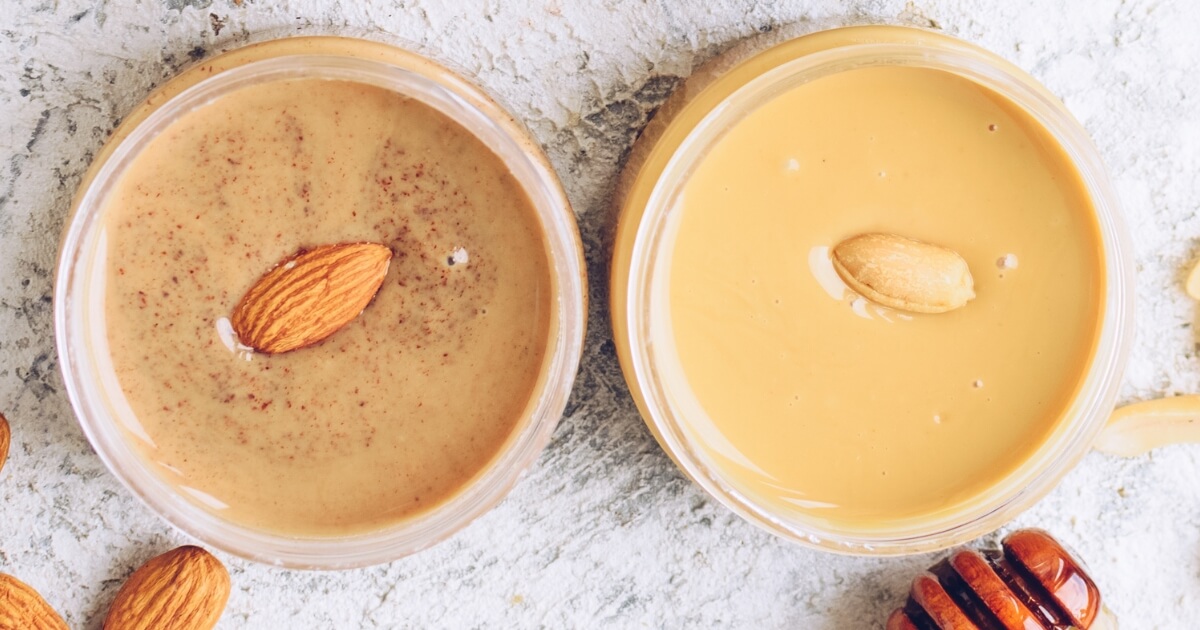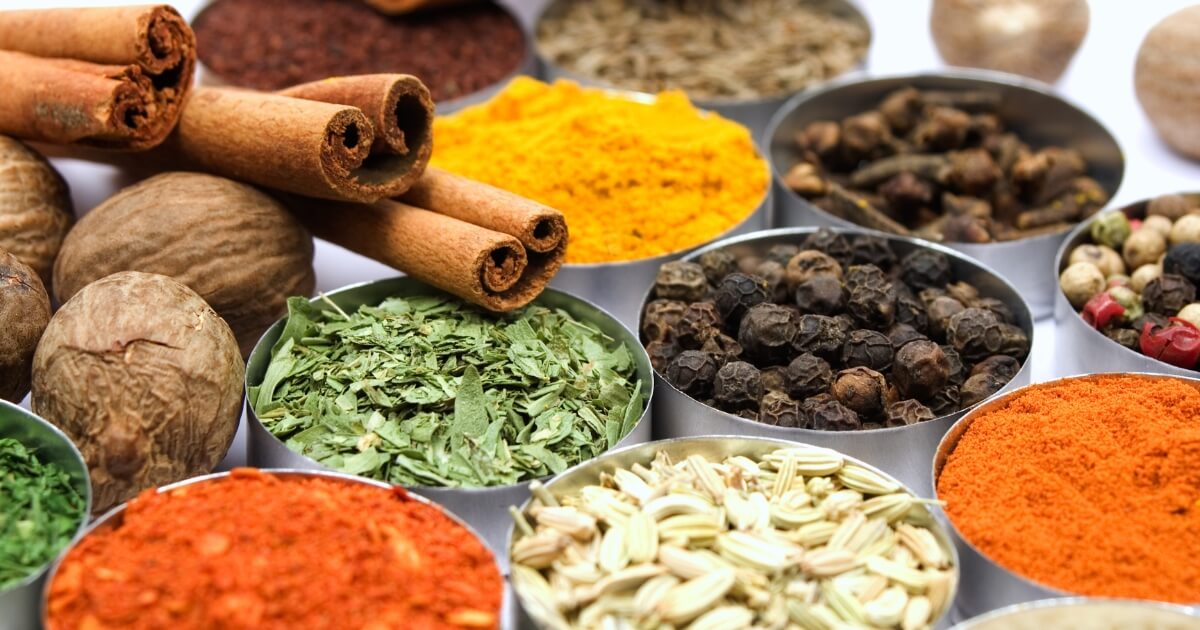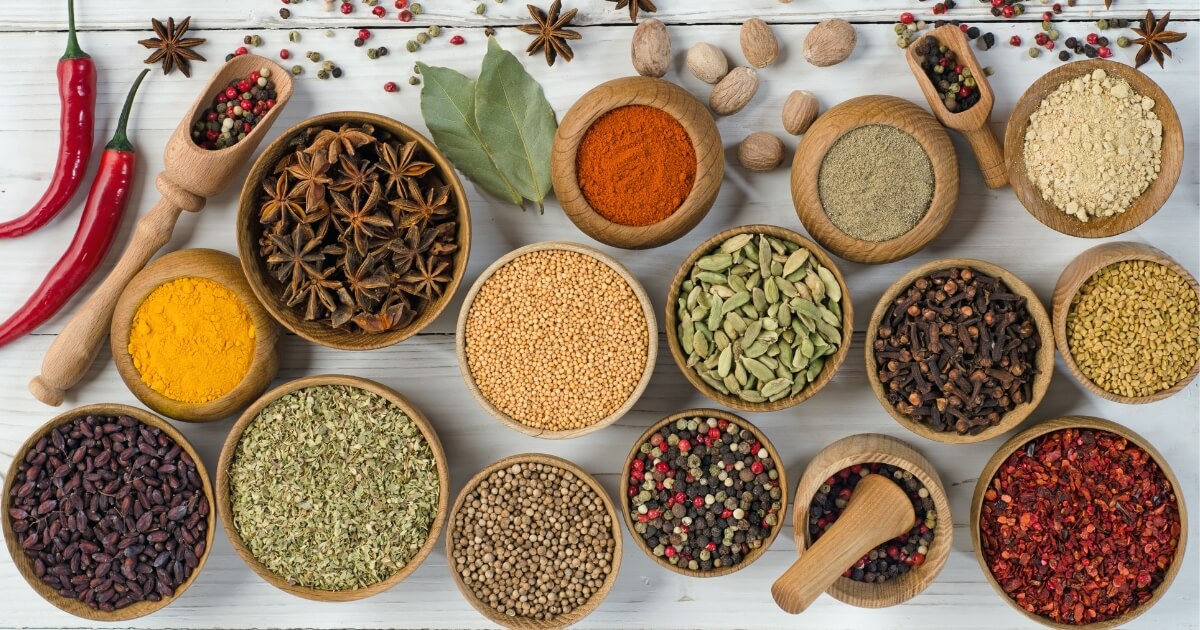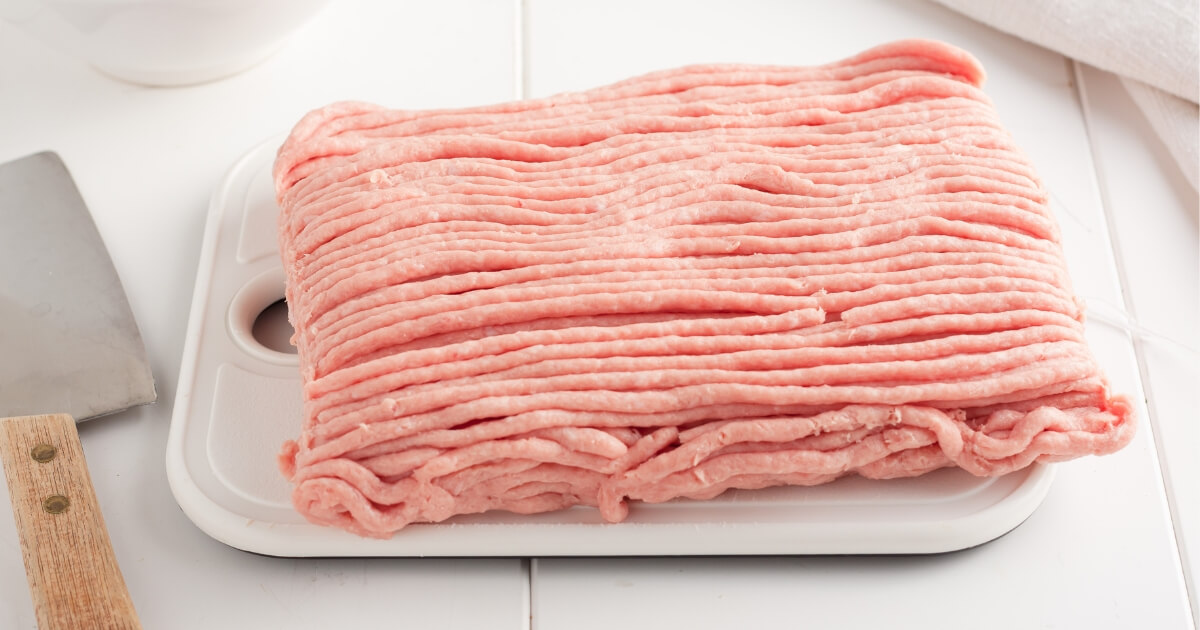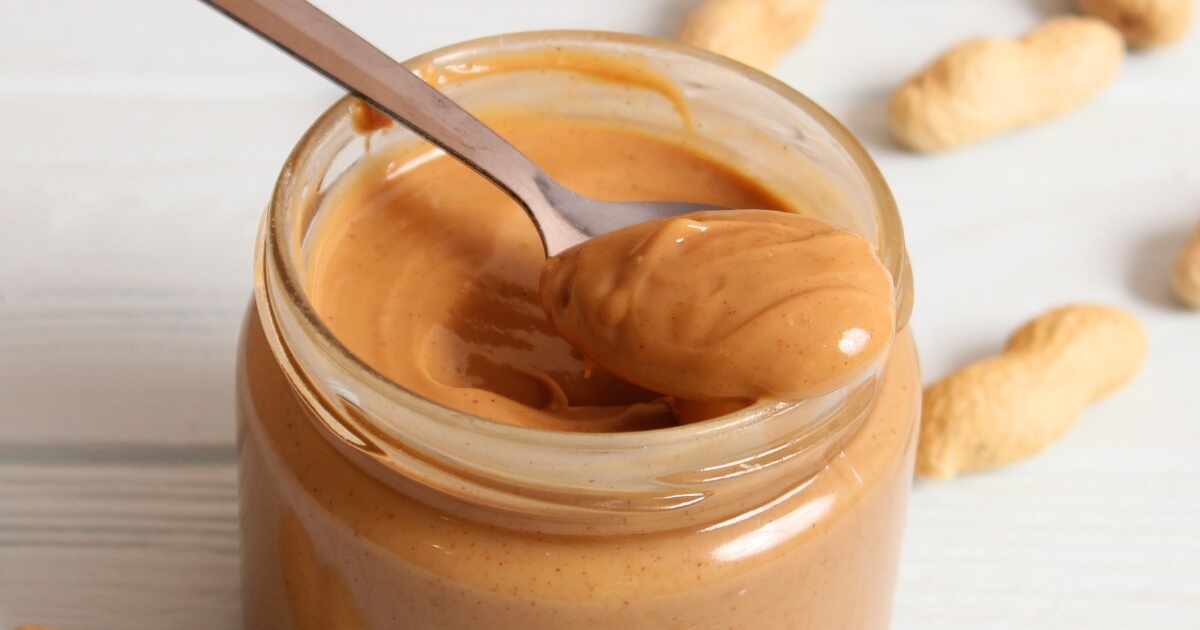I always have a stockpile of potatoes in my pantry, but I often find at least one that doesn’t look or smell quite right.
Although potatoes can last a while tucked away in the dark, they will go bad at some point and eventually become inedible.
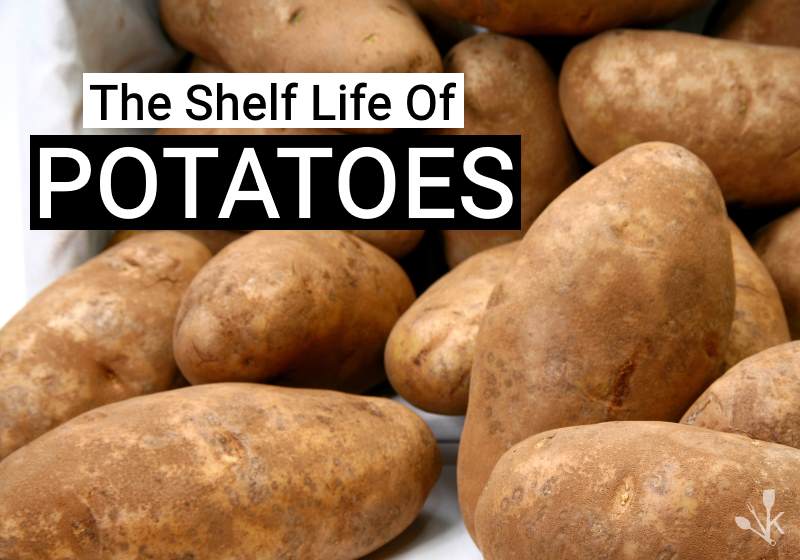
When do potatoes cross the line from ripe to rotten potatoes? In this guide, I’ll explain their shelf life and how long potatoes last, signs of spoilage and when to toss them, and a few tips on how to keep them fresh for longer.
How Long Do Potatoes Last?
Potatoes stored at room temperature in a cool, dark, and moisture-free environment can last up to 6 months. For peak freshness, it’s ideal to use them within 1-2 weeks. After cooking, you should refrigerate and consume them within three days.
Here is a quick look at the shelf life of potatoes:
| Types of Potatoes | Room Temperature | Refrigerator | Freezer |
|---|---|---|---|
| Generic White Potatoes | Up to 5-6 months (best within 1-2 weeks) | About 1 month (best within 2 weeks) | Up to 11 months (blanched) |
| Cooked Potatoes | 1-2 hours | Up to 3 days | Up to 2 months |
| Russet Potatoes | Up to 6 months (best within 1-2 weeks) | About 1 month (best within 2 weeks) | Up to 12 months (blanched) |
| Red Skin | Up to 5 months (best within 1-2 weeks) | 3-4 weeks (best within 2 weeks) | Up to 10 months (blanched) |
| Yukon Gold | Up to 5-6 months (best within 1-2 weeks) | About 1 month (best within 2 weeks) | Up to 11 months (blanched) |
| Fingerling | Up to 4 months (best within 1-2 weeks) | 3 weeks (best within 2 weeks) | Up to 9 months (blanched) |
| Sweet Potatoes | Up to 3-4 weeks | 2-3 weeks | Up to 12 months (blanched) |
At Room Temperature
Raw Potatoes
Your potatoes love a cool corner in your kitchen, ideally between 45°F and 50°F. If they’re too cold, they develop a sweet taste, and if they are too warm, they sprout faster.
Do you have a quiet and cool corner away from the hustle and bustle of the stove and oven? That’s where your potatoes want to be, a dark and dry spot, like a pantry or a cupboard.
Make sure to keep them away from moisture. Moisture will cause them to spoil or rot faster.
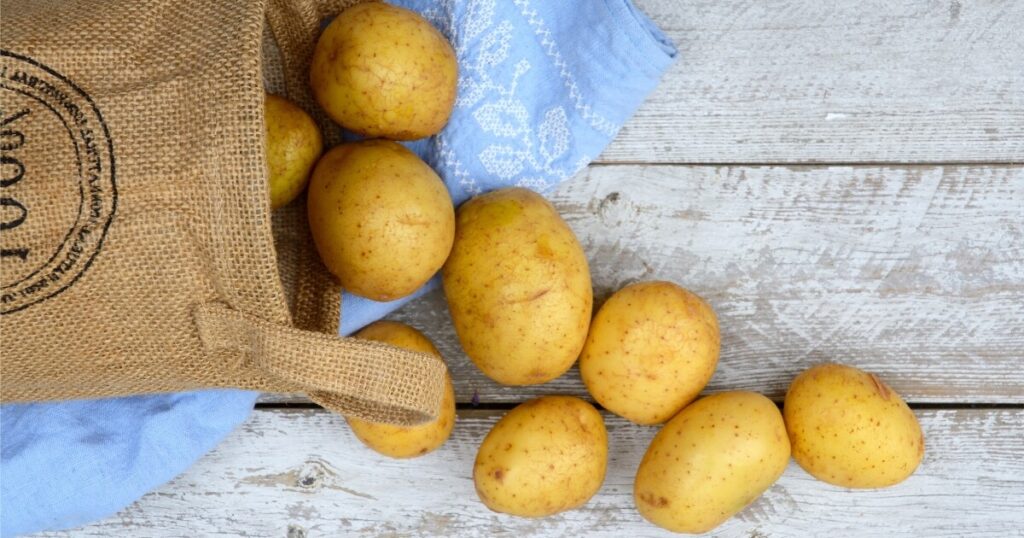
I’ve found that using a paper bag, cardboard box, or mesh bag lets the potatoes breathe and helps keep them fresh for longer.
In these conditions, your regular russets or white potatoes can last up to 6 months. But, from my kitchen to yours, they’re at their best within the first 1-2 weeks.
Keep an eye out for any sprouts or soft spots as time goes on.
Cooked Potatoes
Don’t let your cooked potatoes lounge around on the counter for more than 2 hours, especially if you’ve added milk, butter, or cream to them. Any longer, and you’re inviting harmful bacteria to the party, which could make you or your guests sick.
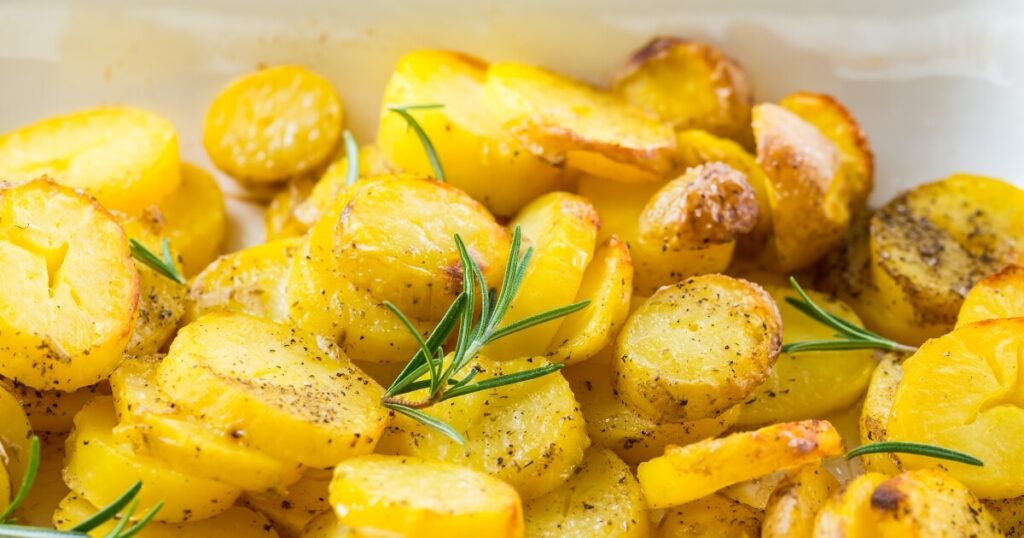
If you haven’t been keeping track of time, it’s hard to tell if potatoes have been sitting out too long. If you’re unsure or if those spuds have a bad smell or feel weird, it’s best to let them go.
In The Refrigerator
Uncooked Potatoes
In my experience, raw potatoes in the fridge can last about a month. But if you’re like me and prefer that classic potato taste, aim to use them up in a couple of weeks.
I’ve tried storing potatoes in the fridge when I ran out of pantry space. It does keep them around longer, but there’s a little trade-off.
They can get a tad sweeter because the cold turns their starch into sugar, meaning they might brown a bit quicker when you cook them as the sugars caramelize.
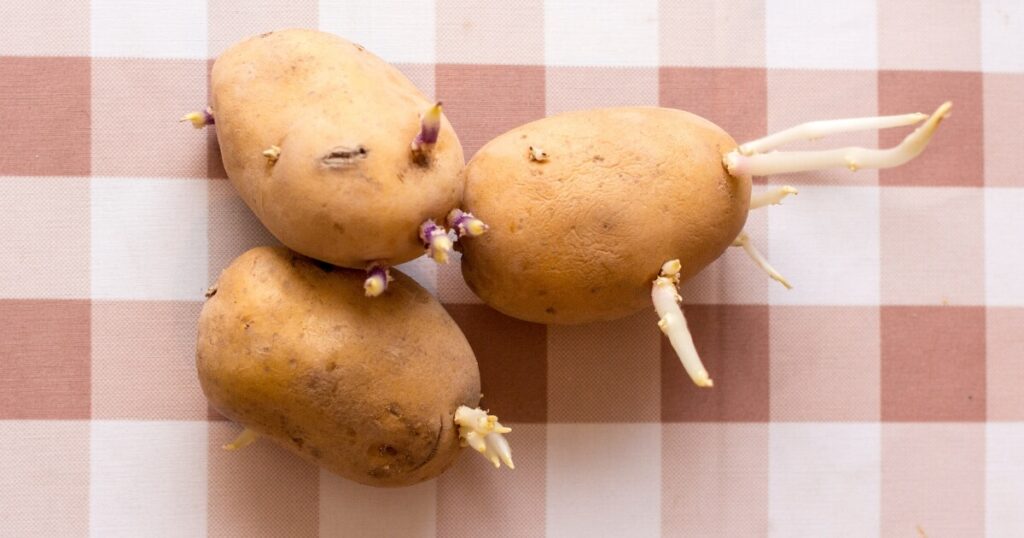
And due to the excess moisture that can build up in a fridge, they can go soft much quicker or start to sprout if you don’t keep on top of it.
If you’ve peeled and cut your potatoes, you’ll want to avoid them oxidizing and turning brown. You should fully submerge them in cold water and carefully store them in the fridge. They should last up to 24 hours when you’re ready to use them.
Cooked Potatoes
Cooked potatoes come in handy when you’re in a pinch, right? But remember, it’s best to eat them within three days when stored in the fridge. If they linger beyond that or something seems off, saying goodbye is safer.
After you’ve made those delicious mashed or roasted potatoes, let them cool to room temperature.
Once cooled, I stash them in airtight containers or plastic Ziploc bags with as much air removed as possible. It’s a neat trick to keep them tasting just as they should and prevent any other fridge smells from mingling with them.
In The Freezer
Raw Potatoes
Freezing uncooked potatoes can be a bit tricky. If you toss them in as is, I’ve found that they don’t come out quite right. The texture changes, and they can become grainy.
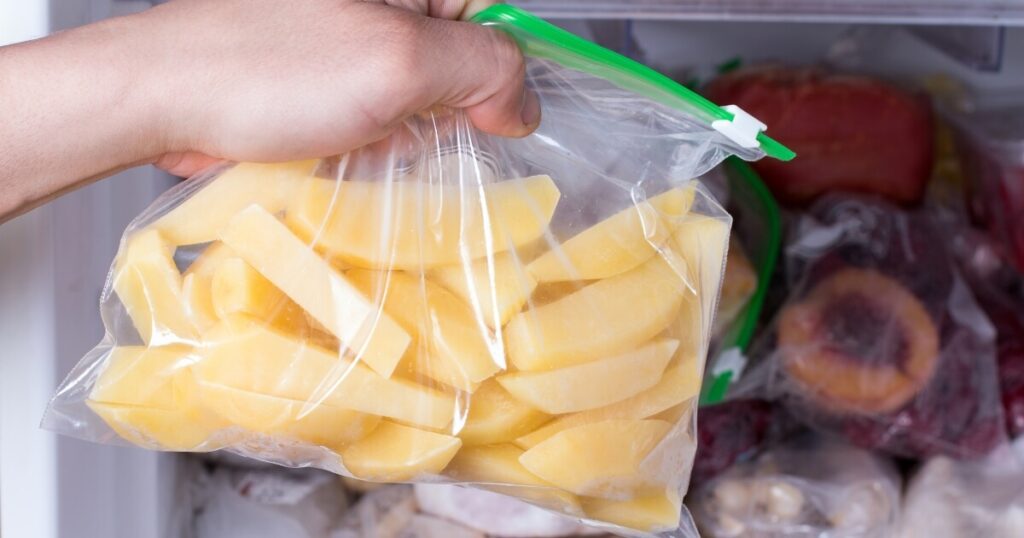
So, if you’re set on freezing them, it’s best to blanch them first. This little pre-cook can make a world of difference.
Once you’ve done that, potatoes can stay in the freezer for up to 12 months. But, like with most things, the sooner you use them, the better they’ll be.
Cooked Potatoes
Now, cooked potatoes are a different story. They freeze beautifully, whether instant, mashed, roasted, or even those lovely potato wedges. Just make sure they’re cooled down, pop them in freezer bags or containers, and you’re good to go.
They can last a few months in there, but I’d recommend using frozen cooked potatoes within two months for the best flavor and texture. When you’re ready to eat, just reheat them, and they’re almost as good as fresh. Almost.
How To Tell If Potatoes Are Bad
Discoloration And Green Potatoes
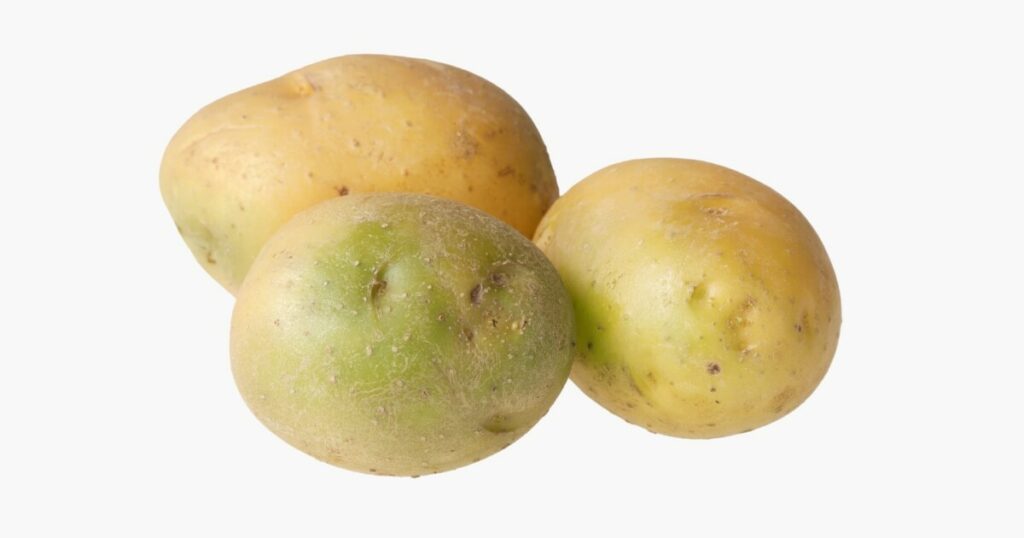
Potatoes usually have a consistent color, whether they’re russet, red, or gold. But if you see black spots or areas that are turning black, green, or any hue that’s out of the ordinary, it’s a warning sign.
Especially watch out for green spots or patches. This indicates the presence of solanine, a natural toxin that can be harmful if consumed excessively. These green parts can taste bitter, so I’d suggest peeling or cutting them away before cooking.
Mold And Fuzziness
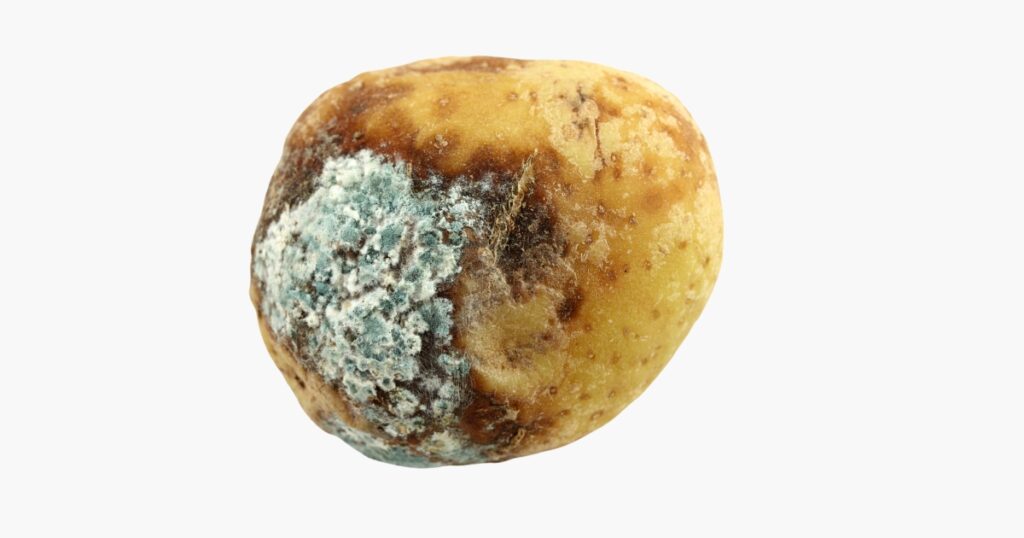
Have you ever pulled out a potato and noticed it’s sporting a bit of fuzz or mold? That’s a clear sign it’s past its prime. Mold can develop if potatoes are exposed to moisture, so always keep them dry.
If you see moldy potatoes, it’s best to play it safe, discard them, and check the rest in the bag.
Bruising and Damage
You know, potatoes can be a bit sensitive. If they’ve been dropped or bumped around, they might show bruises.
These dark spots aren’t usually harmful but can affect the potato’s texture and taste.
It’s best to cut out the bruised areas before cooking.
Liquid Oozing
If you notice any liquid oozing out of your potato, it’s a sign that it’s overripe and starting to break down. This usually happens when potatoes have been stored for too long or in unfavorable conditions.
It’s best to toss these out, as the texture and flavor will be off.
Softness Or Sponginess
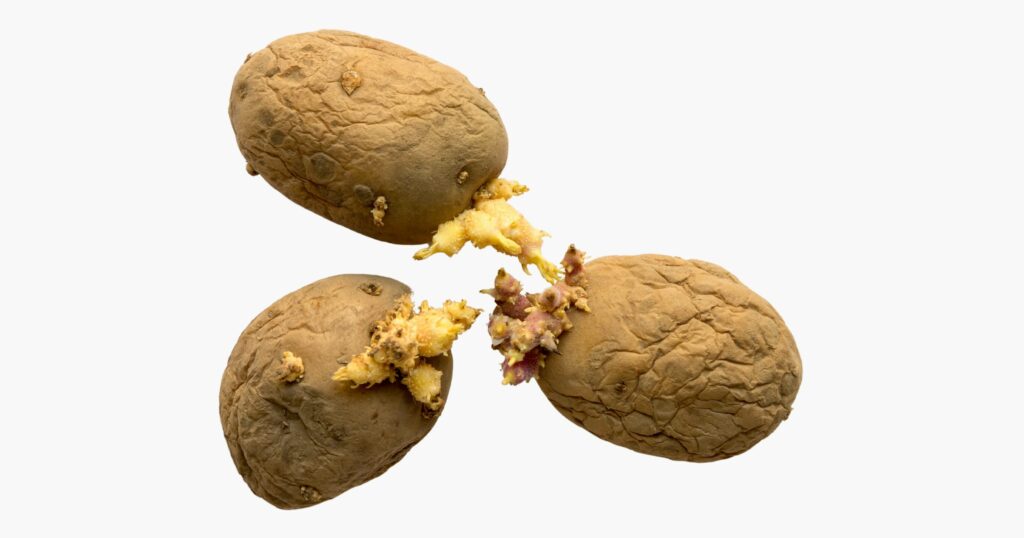
A fresh potato should feel firm and robust. If it’s gone soft or if you can easily squeeze it, it’s likely starting to spoil. Soft potatoes might still be safe to eat if there’s no other sign of spoilage, but they won’t be top quality.
If a potato feels spongy or soggy, it’s a sign it’s been stored in a too-humid environment. This can lead to faster spoilage.
Spongy potatoes are best used in dishes where texture isn’t crucial, like mashed potatoes, or better yet, discarded.
Musty Smell
Fresh potatoes have a lovely, earthy aroma. But bad potatoes or ones that are going bad? They’ll give off a musty, unpleasant scent.
Trust your nose on this one. If it doesn’t smell right, it’s time to let it go right into the trash or compost.
Shelf Life Of Potatoes FAQs
Are Sprouted Potatoes Safe To Eat?
Yes, sprouted potatoes are safe to eat, but you should remove and discard the sprouts. If you notice the potato has shrunk or wrinkled around those sprouts, it means that it’s losing its nutrition and flavor. It’s best to consume them within a week of sprouting.
Why Do My Potatoes Turn Green Sometimes?
Potatoes turn green due to exposure to light, causing chlorophyll to form under the potato skin. This green tinge color isn’t harmful in small amounts but can taste bitter. For a better taste, just peel or cut away the green parts and enjoy the rest. And for next time, remember to store them in a darker spot.
Can You Eat Soft Potatoes?
A good potato is firm. If it’s soft or squishy, it’s starting to go bad. While it might still be safe to eat if there’s no mold, the quality won’t be top-notch. Soft potatoes are best used mashed or in dishes where texture isn’t as important.
Can Old Potatoes Make You Sick?
Yes, old or spoiled potatoes can make you sick. Potatoes that have turned green or have sprouted can contain solanine. Consuming large amounts of this toxin can lead to nausea, headaches, and other adverse effects. Always ensure your potatoes are in good condition before eating.
Can You Keep Onions and Potatoes Together?
It’s not a good idea to store onions and potatoes together. Both release gases that can accelerate the ripening or spoiling process of the other. Store your potatoes and onions separately in a cool, dry place for a longer shelf life.

